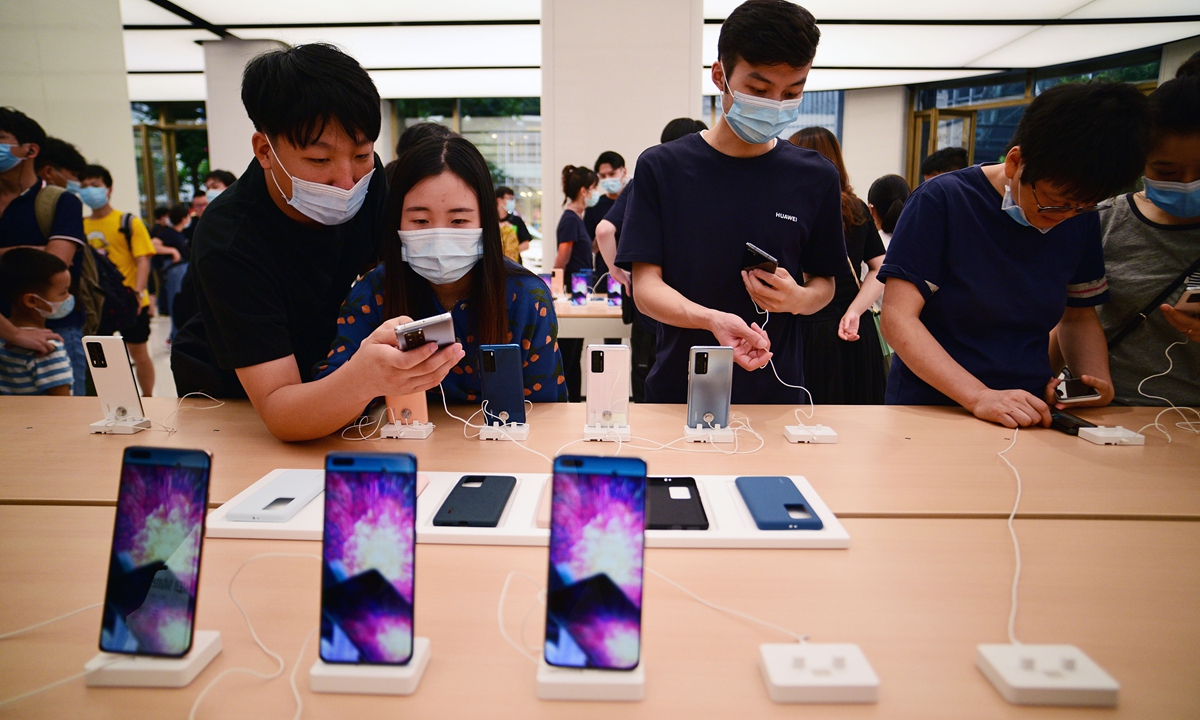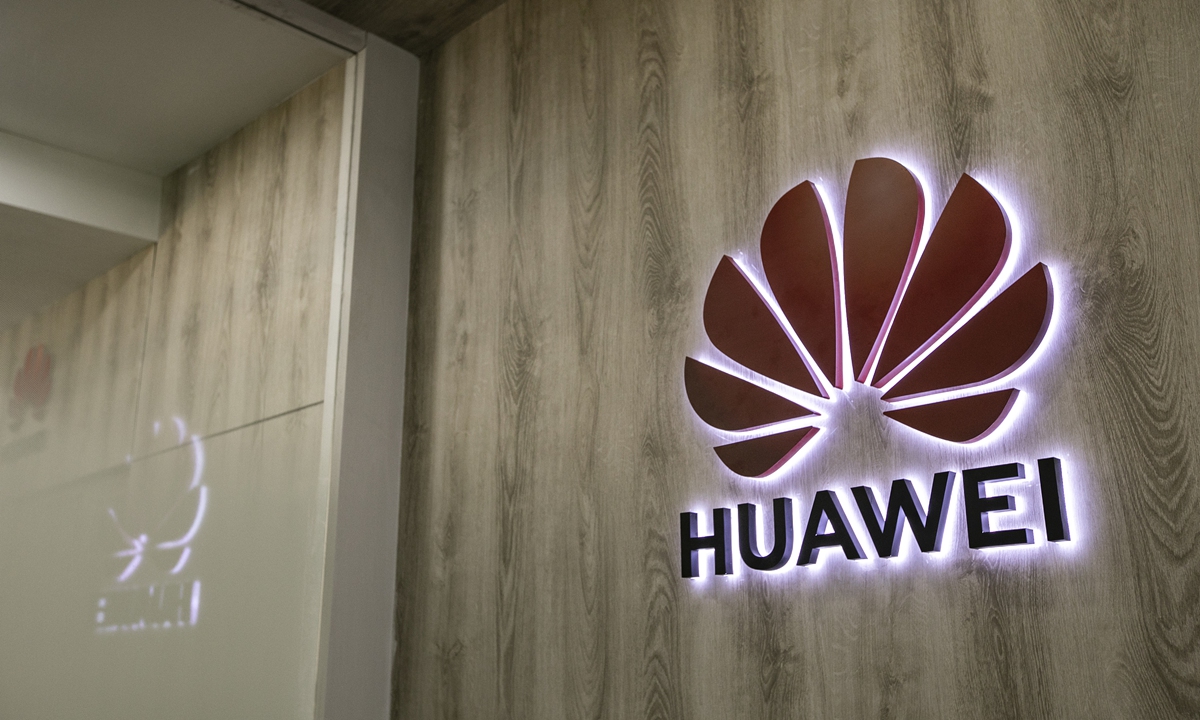Huawei to launch phone with Kirin 9000 chips, despite supply issue
Source: Global Times Published: 2020/9/5 15:31:25

Huawei store Photo:VCG
Huawei plans to launch its smartphone equipped with Kirin 9000 smartphone chips in "limited numbers," a Huawei executive said on Saturday after the tech giant's Taiwan-based chip supplier said it will halt shipments to Huawei after September 14 to comply with US sanctions, which raised concerns over the company's smartphone business.
The statement from Richard Yu Chengdong, chief executive of Huawei's consumer business group, indicates a tentative plan for the Shenzhen-based tech giant which has been targeted by intensifying US crackdowns.
However, Yu was also straightforward about the difficulty the company faces in securing chip supplies.
"It's a lesson for Chinese companies that only focus on design in the process of globalization. Now the only problem we face is production, as Huawei can't produce the chips by itself," Yu said, new.qq.com reported on Saturday.
Yu's statement came after Taiwan-based TSMC, the supplier of Kirin 9000 chips, confirmed that it will stop shipping semiconductors to Huawei after September 14 to comply with US sanctions on Huawei.
Earlier this year, the US government put Huawei on its Entity List, which requires US companies to obtain a license to export domestically produced chips and software.

Huawei. Photo: VCG
The Trump administration has recently moved to block shipments of semiconductors to Huawei Technologies from global chipmakers.
This has also raised concerns that Huawei may be forced to reduce, or even stop selling its high-end mobile phones like Mate 40. Yu also disclosed earlier that Huawei's Mate 40 series will be its last smartphone to use Kirin chips.
"I wouldn't not say that the matter is settled, because the China-US political situation might change after the US presidential election, and it's possible that the US will change its policies toward China and Huawei," Xiang Ligang, an independent telecom analyst, told the Global Times on Saturday.
Xiang also noted that while Chinese chip manufacturers don't currently produce high-end 5nm or 7nm chips, it does not mean they won't be able to manufacture them in the future.
According to Xiang, a couple of Chinese companies are already producing 14nm chips which are often used in medium-level mobile phones.
"The reason they don't produce the high-end 5nm or 7nm chips is likely due to customer shortage, not a technological gap. Of course, they need to invest a lot of capital to upgrade their existing technologies but it's not like a mission impossible for Chinese chipmakers," Xiang said, predicting that Huawei might resort to Chinese suppliers in the face of the US crackdown.
Global Times
RELATED ARTICLES:
Posted in: COMPANIES